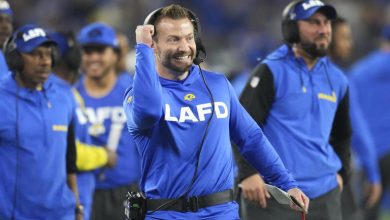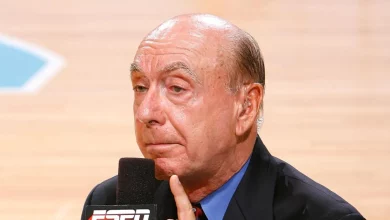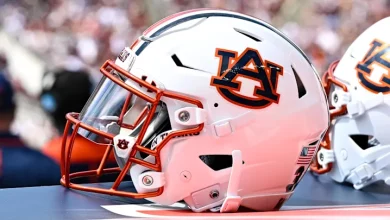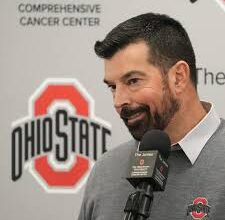“If Kirby Smart has $13 million?”: The Debate Between Chico Cleveland and Unk The Market Value of Deion Sanders in College Football
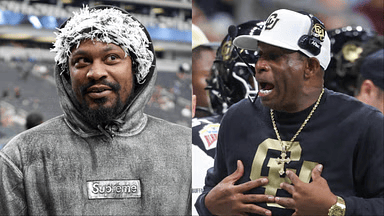
In the ever-evolving landscape of college football, coaches have become some of the highest-paid individuals in the industry. With enormous television deals, sponsorships, and the pressure to win, the financial stakes are higher than ever for college programs. The salaries of top-tier coaches often reflect not just their success on the field but also their marketability, ability to recruit, and influence on a program’s brand. In this context, a heated debate has emerged between two personalities, Chico Cleveland and Unk, about the market value of Deion Sanders, the head coach of the Colorado Buffaloes. At the heart of this discussion is a provocative question: “If Kirby Smart has $13 million, what should Deion Sanders be worth?”
This debate touches on several crucial aspects of modern college football, including coaching salaries, the business side of the sport, and the impact that coaches like Deion Sanders have on the programs they lead. To fully understand the conversation, we must look at the context of Kirby Smart’s contract, Deion Sanders’ rise as a coach, and the broader economic factors at play in college football today.
The $13 Million Question: Kirby Smart’s Record-Breaking Salary
The debate begins with a reference to Kirby Smart, the head coach of the Georgia Bulldogs. In 2023, Smart signed a contract extension that made him the highest-paid coach in college football, with an annual salary of $13 million. Smart’s record-breaking salary was a reflection of his incredible success at Georgia, including winning the 2021 and 2022 College Football Playoff championships, consistently recruiting at a top-tier level, and transforming Georgia into a perennial contender for the national title.
Under Smart’s leadership, Georgia has not only become a powerhouse in college football but also a program that generates massive revenue through ticket sales, merchandise, and, importantly, television contracts. Smart’s salary of $13 million is indicative of the business side of college football, where success on the field translates directly into financial windfalls for the program. His ability to consistently win and recruit top talent has positioned him as a key figure in the sport, and his compensation reflects that.
For Chico Cleveland and Unk, the question is straightforward: if a coach like Kirby Smart can command $13 million, what is the market value of someone like Deion Sanders, who has brought a fresh wave of excitement and attention to the college football world?
Deion Sanders: The Rise of Coach Prime
Deion Sanders, also known as Coach Prime, has become one of the most dynamic figures in college football. Sanders, a Pro Football Hall of Famer, gained national fame for his flashy playing career in both the NFL and MLB, and his larger-than-life personality. His transition from player to coach was highly anticipated, especially given his charisma and ability to recruit. Sanders first made his mark at Jackson State University, a historically Black college, where he revitalized the program, led them to numerous winning seasons, and helped elevate the profile of the SWAC (Southwestern Athletic Conference).
However, it wasn’t until his move to Colorado in 2022 that Sanders became a household name in college football coaching. His arrival at Colorado was met with excitement and curiosity, as the program had been struggling for years but had suddenly gained national attention. The announcement of Sanders taking over the Buffaloes sparked a media frenzy, and his impact was felt almost immediately. His approach to coaching, which combines a high-energy, personality-driven style with a relentless recruiting strategy, has captured the attention of fans, players, and media alike.
Under Sanders, Colorado saw a massive spike in interest, both in terms of recruiting and media coverage. His ability to bring in top-tier talent, including the transfer of his own son, Shadour Sanders, as the team’s starting quarterback, changed the trajectory of the program. Colorado became a media sensation, with Sanders’ charismatic personality taking center stage. His recruiting prowess, demonstrated by the influx of high-profile athletes and his influence on social media, has been a game-changer for a program that had long been dormant.
As a result, many have started to draw comparisons between Sanders and other top coaches like Kirby Smart. The question then becomes: What is Deion Sanders’ market value in the college football world? And what factors determine his worth?
Chico Cleveland’s Perspective: Sanders as a Cultural Icon
Chico Cleveland, a prominent sports commentator and analyst, is firmly in the camp that Deion Sanders is worth at least what Kirby Smart makes—or even more. Cleveland’s argument is not just about wins and losses on the football field, but about the broader cultural and financial impact Sanders has had on the game.
From Cleveland’s perspective, Deion Sanders is more than just a coach—he is a brand. His larger-than-life persona, magnetic personality, and ability to generate national attention have made him one of the most marketable figures in college sports. While Kirby Smart’s success on the field is undeniable, Cleveland argues that Sanders’ value goes beyond X’s and O’s. Sanders’ influence in the world of college football is unmatched in terms of the media exposure he generates and the revenue he brings to his program.
In Cleveland’s view, Sanders has created a new model for coaching in college football. The game is changing, and with the growing importance of social media and media rights deals, coaches like Sanders can have an outsized impact on a program’s revenue streams. His ability to attract millions of eyes to a program, elevate a struggling team, and draw in top-tier recruits is unprecedented. The Colorado Buffaloes saw their attendance and media coverage explode after Sanders took over, with games broadcast to millions of viewers. His presence alone brought financial windfalls in the form of ticket sales, merchandising, sponsorships, and more.
Cleveland argues that if Kirby Smart’s $13 million contract is a reflection of his ability to win championships and recruit talent, then Deion Sanders’ value is at least as high, if not higher, due to his unparalleled ability to capture the public’s attention. In a world where coaching salaries are driven not only by on-field performance but also by the ability to generate revenue for the program, Deion Sanders is arguably one of the most valuable coaches in the nation. Cleveland believes that Sanders should command a salary on par with the top earners in college football, perhaps even more, given the broader cultural impact he has.
Unk’s Perspective: Focus on Results and Long-Term Success
On the other side of the debate is Unk, a seasoned football analyst with a more traditional view on coaching salaries. While Unk acknowledges the cultural influence and media impact of Deion Sanders, he argues that a coach’s true value should ultimately be measured by sustained success on the field. Unk’s position is that while Sanders has undoubtedly brought attention to Colorado and rejuvenated the program, his long-term value will be determined by how well he performs on the field and whether he can turn the program into a consistent contender in a competitive conference.
Unk points out that Kirby Smart’s $13 million salary is justified not only because of his championship wins but because of his sustained excellence at Georgia. The Bulldogs have been consistently ranked among the top teams in college football for several years, and Smart has built a program that is not only successful but built to last. Unk argues that Deion Sanders’ value should not be determined by early media attention or a few successful recruiting classes. Instead, it should be based on whether he can sustain a winning program over the long term.
For Unk, Sanders’ success at Colorado is still in its early stages. While Colorado had a resurgence under Sanders in his first year, it remains to be seen whether he can maintain that momentum, particularly as the competition in the Pac-12 (and soon the Big 12) intensifies. Unk acknowledges that Sanders has brought excitement to the program but believes that his market value should not exceed that of other coaches who have consistently proven their ability to win at the highest level over time.
Unk’s view reflects the traditional metrics of success in college football: wins, championships, and consistent program development. He argues that while Sanders is undoubtedly a talented recruiter and a magnetic figure, his ultimate value will be judged by his ability to win championships and compete at the highest level. If Sanders can continue to build a winning program at Colorado and maintain success for several years, then his market value will rise accordingly. Until then, Unk suggests that Sanders should not yet be placed in the same salary category as coaches with sustained excellence like Kirby Smart.
The Broader Impact of Deion Sanders on College Football
Regardless of where one falls in this debate, it is clear that Deion Sanders has already made an indelible mark on college football. His ability to recruit, build excitement around his program, and attract media attention has fundamentally changed the way that programs think about the intersection of football success and financial success. As the sport continues to evolve, figures like Sanders will continue to drive the conversation around coaching salaries and the business side of the game.
In the end, the debate about Deion Sanders’ market value is about more than just his salary—it’s about understanding the changing landscape of college football, where success on the field is no longer the only metric by which coaches are measured. As the sport grows more commercialized and coaches become more integral to their programs’ financial success, Deion Sanders’ ability to capitalize on his brand and elevate his program will likely increase his value in the market. Whether he reaches a salary on par with Kirby Smart’s $13 million remains to be seen, but one thing is certain: Deion Sanders has already reshaped the landscape of college football coaching.



